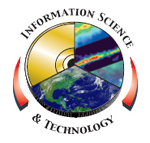Goddard Showcase – Applying Research in Artificial Intelligence for Spacecraft Resilience (RAISR) to Distributed Spacecraft Missions (DSM)
To enable the demand for scientific discovery through deep space exploration, missions need to be able to travel further and operate more efficiently than ever before. To achieve full mission autonomy, intelligent onboard fault diagnosis methods must be developed, with special consideration of anomalous faults. To this end, we present the work encompassed by project RAISR (research in artificial intelligence for spacecraft resilience), which includes a novel system-level diagnosis algorithm that leverages three artificial intelligence (AI) constructs --Autoencoders, Kalman Filters, and a Causality method. RAISR was tested against three telemetry datasets of varying complexity levels achieving accuracy of at least 70% across all cases. We discuss these findings, emphasizing future work in applying the methods of RAISR to a distributed spacecraft mission (DSM) to ensure mission and node level self-healing of coordinated constellations.
Date/Time
Wednesday, October 20, 2021, 11:40am-12pm EST
This seminar can be viewed remotely via Microsoft Teams: Join here
Recorded session is available through the Goddard Library
IS&T Colloquium Committee Host: Matt Dosberg
Evana Gizzi
Evana Gizzi is an artificial intelligence (AI) Ph.D. candidate at Tufts University in Boston MA, and a Pathways Intern at NASA Goddard Space Flight center in Greenbelt MD. Her PhD research area is creative problem solving in intelligent agents (specifically robots). At GSFC, she serves as PI to project RAISR (Research in AI for Spacecraft Resilience) which investigates methods for onboard fault diagnosis in spacecraft using housekeeping telemetry. Currently, RAISR is being adapted for use in a distributed spacecraft mission (DSM) research effort, where it will facilitate node and mission level self-healing of a constellation. In her free time, Evana likes to spend time with family and friends.

